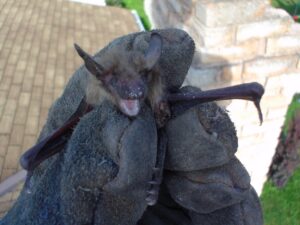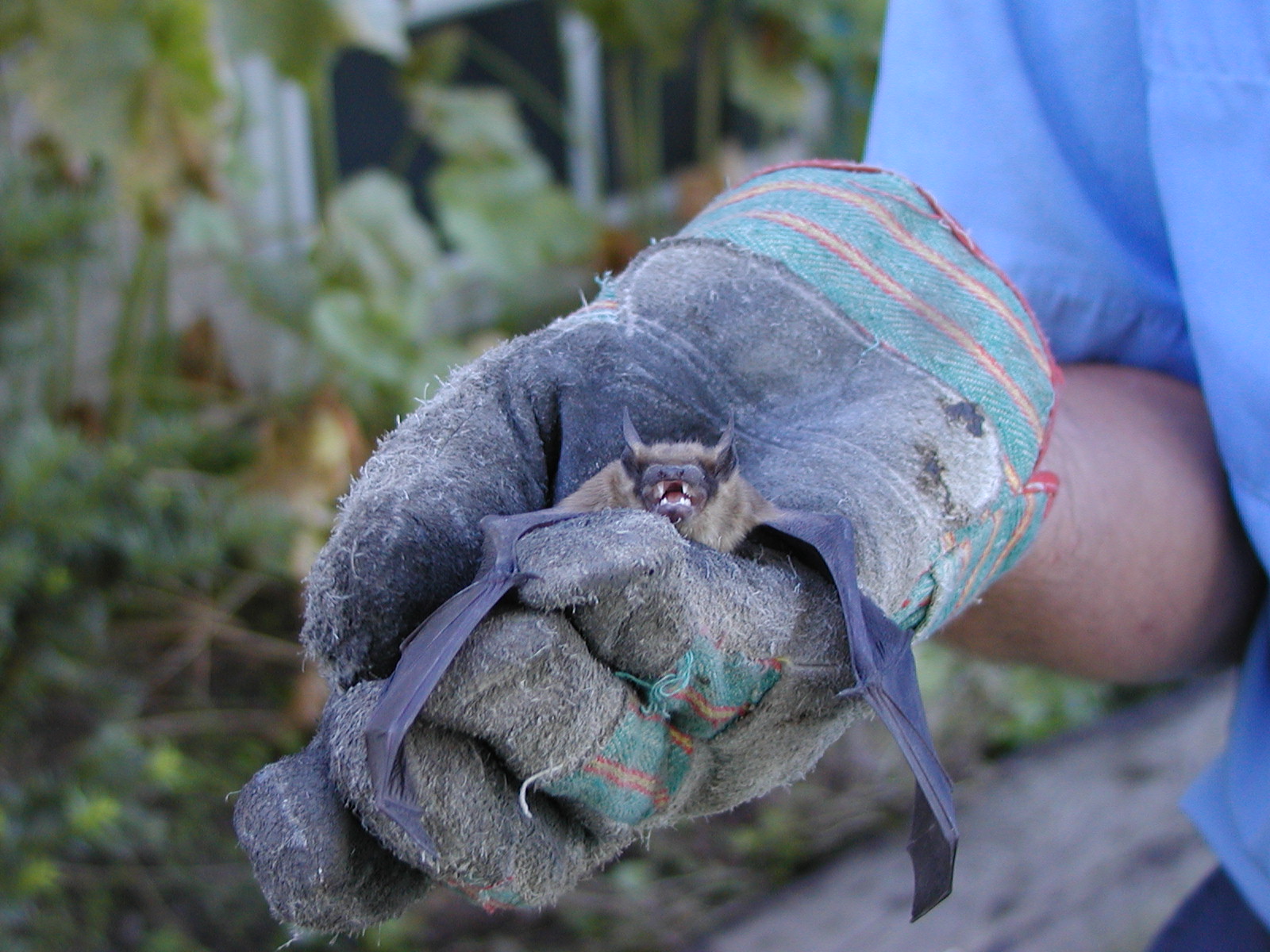While many people fear bats and associate them with diseases and the macabre, bats play an important part in many environments around the world. Worldwide, there are almost 1,400 species of bats, and approximately 20 of those bat species are native to Canada. These animals are critical to the health of Canada’s environment and economy. These nocturnal animals go to work each night eating pests that wreak havoc on agricultural lands. Bats also play an important role in plant pollination and maintaining the health of the food supply.
Bats are increasingly seeking shelter in residential areas because their habitats are being destroyed. They can make their way into your home by squeezing their bodies through small gaps in the roof. If you suspect that you have bats living in your home, you are likely looking for a safe and effective way of removing them. You don’t want to harm them or try to remove them yourself, because doing so can be both illegal and dangerous. Hire a wildlife control expert in Oshawa to take care of the situation. Below are some reasons why we should conserve bats, not exterminate them.
Bats Are Super Pollinators
Bats are important to the plant pollination process. Approximately 500 plants, including mango, banana, guava, durian and agave, are pollinated by bats. This process is referred to as chiropterophily. In contrast to plants that are pollinated by bees, pale nocturnal flowers depend on the pollination from bats. Nocturnal plants are large, bell-shaped flowers that depend on bats to reach their nectar. The nectar of these plants is situated too deep in the flower and cannot be reached by bees and other pollinators.
Many bat species found in Canada are endangered and need to be protected. They are an essential component of the food supply system, and the ramifications could be catastrophic to the ecosystem if bat species become further endangered or extinct.

Bats Diminish Insect Populations
Bats are nocturnal creatures that spend their nights eating insect pests, including flies, beetles and moths, saving thousands of acres of farmland and billions of dollars each year. Bats can consume up to their body weight in insects each day and consume many of the insects that are most harmful to the environment.
While bats play an important part in keeping the agricultural industry running smoothly, the pesticides used by farmers can harm these creatures. If ingested, pesticides are dangerous to the health of bats. Further, increased use of pesticides will kill off more insects, eliminating bats’ primary food source.
Bats Contribute to Health Research
While many people associate bats with spreading disease, they actually contribute to health research. Currently, scientists are using the saliva of bats to find a cure and better treatments for blood clots that cause strokes. The protein in bat saliva is believed to act as an anticoagulant and may be used in medicine for human diseases in the future. Further, researchers are studying bat resistance to malaria in hopes of learning how to better deal with this disease in humans.
While bats do carry certain illnesses like rabies, many animals spread this disease much more frequently than bats.
The Centers for Disease Control reports that dogs are responsible for more than 99% of human deaths caused by rabies worldwide. Also, the capability of bats to spread other diseases has been largely unsubstantiated and transmission of viruses between bats and humans remains rare.
Skedaddle Humane Wildlife Control Can Help
If you suspect you have bats living in your attic or basement, contact Skedaddle today. We recognize the important role bats play in Canada’s ecosystem, and we are committed to removing them using only humane and efficient strategies. Contact us today to discuss your options with a qualified wildlife control Oshawa technician.




